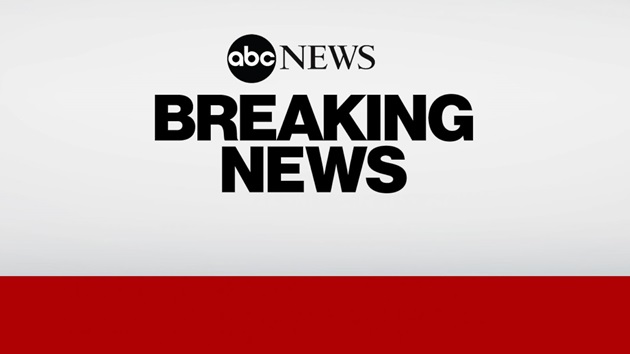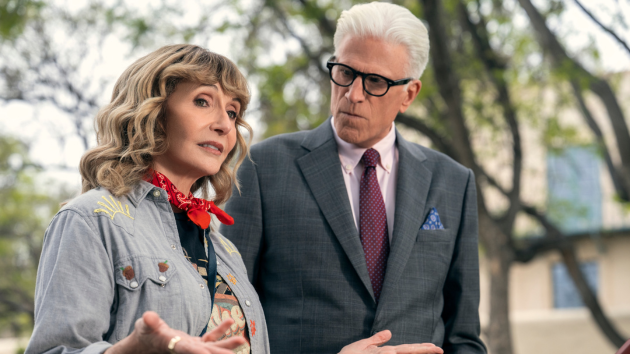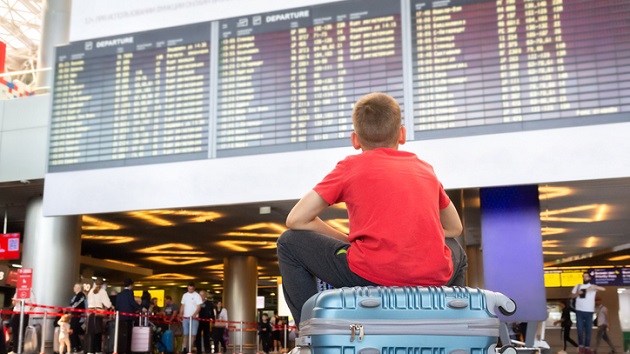Ramaswamy defends debunked conspiracy theories he shared at Republican debate
Written by ABC Audio. All rights reserved. on December 8, 2023
(WASHINGTON) — Entrepreneur and Republican presidential candidate Vivek Ramaswamy shared multiple conspiratorial or controversial claims at Wednesday night’s debate, amplifying them to a new level of prominence in the 2024 race.
Ramaswamy touted himself as an outsider willing to speak “truth” on stage. But most of his assertions on hot-button topics like Jan. 6, the 9/11 terror attacks and demographic changes in the U.S. were groundless or elevated ideas that have been repeatedly debunked.
He told ABC News at a campaign event the following day that he was “proud” of having stirred discussion of the issues, he said. He also said he didn’t believe the theories had, in fact, been debunked.
“I think it is important to speak to the hard truths and I would love to have a strong discussion on the merits of it,” he insisted.
Jan. 6, 2021, riot at Capitol wasn’t ‘inside job’
“Why am I the only person on this stage, at least, who can say that Jan. 6 now does look like it was an inside job?” Ramaswamy said at one point in the debate.
That baseless idea has become popular among fringes on the far-right and on social media, at times even winning support from lawmakers, including Sen. Mike Lee, R-Utah, who last month claimed without evidence that there were “undercover federal agents disguised” in the crowd during the rioting at the U.S. Capitol, as Congress had gathered to certify Donald Trump’s election defeat.
More than 700 people have admitted to a variety of charges in connection with Jan. 6 — 210 of those people having pleaded to felonies — according to the Department of Justice; and more than 130 people have been convicted at trial.
In multiple hearings, convicted rioters have put forward a range of different excuses for their actions — with many pointing the finger at Trump and conservative media outlets who pushed lies about a stolen election while framing the Electoral College certification as the final opportunity to prevent Trump’s removal from office.
‘Great replacement theory’
Ramaswamy also boosted the “great replacement theory,” the white nationalist belief that immigration policies are designed specifically to dilute the political power of white Americans by making them a smaller share of the population.
The idea has been elevated by media figures like Tucker Carlson and inspired mass violence, including the 2015 Charleston, South Carolina, church massacre and the 2019 shooting at a Walmart in El Paso, Texas.
Ramaswamy alleged during the debate that the theory “is not some grand right-wing conspiracy theory but a basic statement of the Democratic Party’s platform.”
He subsequently said on CNN, “I don’t care about skin color … Do you share the ideals of this country?”
He also said that he did not to stir violence. “I want to be careful in the way that I speak about this,” he said.
But he added, “As a leader, it is important to give people the permission to say in public what they’ll otherwise say in private.”
While it is true that Democrats have historically adopted more liberal immigration policies and that the country’s demographics are becoming less white and more racially diverse over time, there is no evidence that those changes are being engineered by politicians to ensure they can win power with those voters.
More specifically, although non-white voters have favored Democrats in presidential elections, they do not all vote as a uniform bloc.
In fact, Trump made small but noticeable gains with Latino and Black voters from 2016 to 2020, according to exit polling; and other Republicans have seen major success with some of those voters, too.
In the 2022 race, Florida Gov. Ron DeSantis won Latino voters over Democratic challenger Charlie Crist, exit polls showed.
Reviving claims over 9/11
Ramaswamy revived his claims about 9/11 terrorist attacks, carried out by al-Qaida, and the groups truly behind it. He argued Wednesday that “the government lied to us for 20 years about Saudi Arabia’s involvement in 9/11.”
Unlike his other theories on the debate stage, Ramaswamy’s comment about Sept. 11 reflects — at least partially — well-known suspicions that were investigated by authorities. Fifteen of the 19 terrorists were Saudi citizens.
Families of 9/11 victims and 9/11 survivors have for years been embroiled in a legal battle against Saudi Arabia’s government, claiming it has some responsibility.
The kingdom, a key U.S. ally in the Middle East, has long denied any involvement.
The 2004 the 9/11 Commission report reads, in part, “It does not appear that any government other than the Taliban financially supported al Qaeda before 9/11, although some governments may have contained al Qaeda sympathizers who turned a blind eye to al Qaeda’s fundraising activities.”
“Saudi Arabia has long been considered the primary source of al Qaeda funding, but we have found no evidence that the Saudi government as an institution or senior Saudi officials individually funded the organization. (This conclusion does not exclude the likelihood that charities with significant Saudi government sponsorship diverted funds to al Qaeda),” the report goes on to say.
ABC News’ Alexander Mallin contributed to this report.
Copyright © 2023, ABC Audio. All rights reserved.





